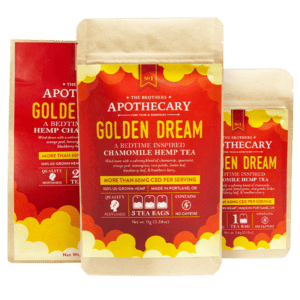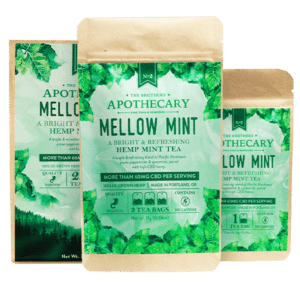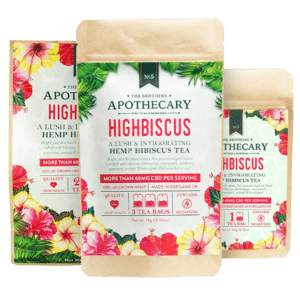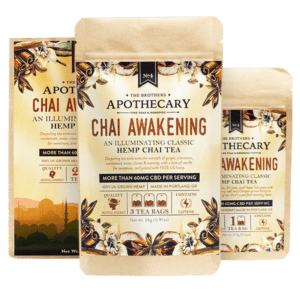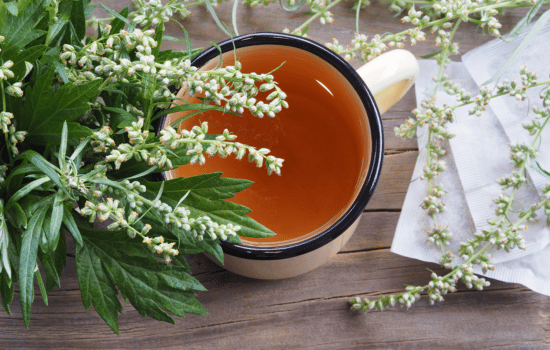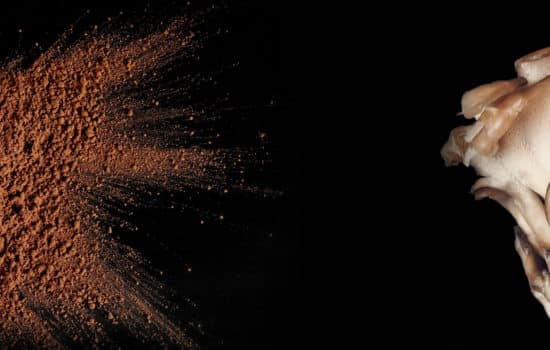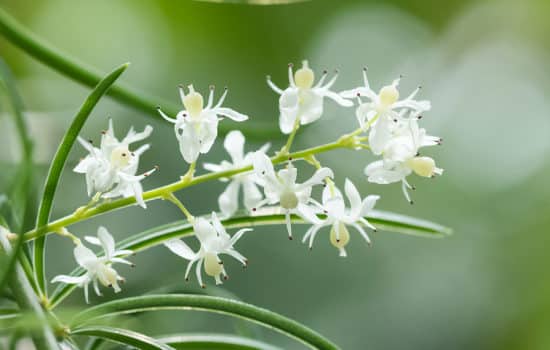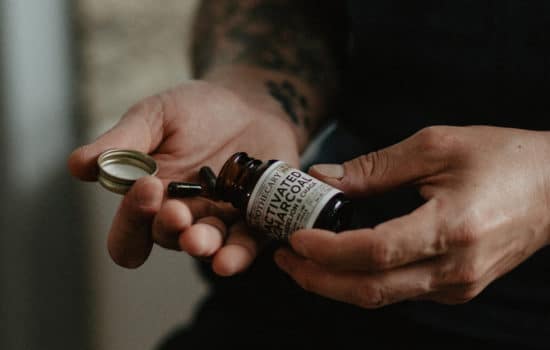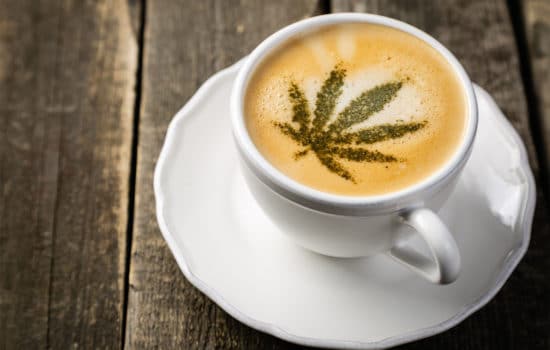Moving your body should be fun, but the day or two after, when you’re feeling the aftermath in your muscles with every step you take? That part is maybe not quite as fun, even for athletes.
Whether adding another quarter mile to your run, completing a long nature walk, trying a new route at the climbing gym, starting a new weight-lifting routine, or even dancing around your bedroom, a good workout can lead to sore and tired muscles. This delayed onset muscle soreness is a sign that your body is recovering, a vital process for building stamina and keeping your muscles healthy.
While the recovery process is necessary, we also understand how frustrating it can be.
Maybe you are chasing that runners’ high and are hoping for a speedier recovery time so you can get back to it. Or perhaps you simply want to be able to relax during recovery without the soreness getting in the way. In either case, trying our full-spectrum CBD products can assist with recovery after your workout routine.
From helping you keep up with your active adventures to making your rest days more restful, read on to learn how to make CBD work for you and your workouts.
What Is CBD Recovery?
Cannabinol–also known as CBD– comes from marijuana or hemp plants and can be a powerful aid in muscle recovery.
As one of the hundreds of cannabinoids found in the cannabis plant, CBD can work with the body’s endocannabinoid system (ECS), an internal system that sends chemical messages to and from the brain. Consisting of cannabinoid receptors in our muscles, organs, and skin cells, the ECS is responsible for responding to mood regulation and more.
So how exactly can CBD support recovery after an intense workout or new type of physical activity? Let’s break it down.
Muscle Damage and Recovery
When you exercise, especially when you move your body in unfamiliar or vigorous ways, it may cause damage to muscle fibers, which become red and swollen to alert the body that support is needed.
The immune system responds by tending to the damage, ultimately making those sore muscles grow and become stronger. This repairing and recovery process allows the same exercise to become easier over time by increasing the strength of your muscles between workouts.
The recovery process builds stamina so you can continue taking on new challenges with less risk of injury. Because CBD can help reduce swelling, it can also help support the immune system in responding to muscle swelling post-workout.
When CBD is absorbed into the body, it can partner with endocannabinoids–chemical compounds that are naturally produced in the body and engage in the endocannabinoid system–at cannabinoid receptors within the muscles.
CBD is actually known to help sustain endocannabinoids by keeping enzymes from breaking them down as quickly, prolonging their effects. So, when your endocannabinoids are hard at work calling on the immune system to bring added support to swollen and micro-damaged muscles, adding CBD tincture or topical creams to the mix can help keep the endocannabinoids going and quicken the recovery process overall.
Neuroprotective Benefits
Promoting calmness and boosting sleep quality is another vital aspect of recovery that CBD can assist with.
The bulk of muscle recovery takes place during our sleep cycle. The deeper and less interrupted our sleep, the more the body can laser-focus its attention on the muscles in need of repair.
Sleep also gives your body the chance to balance out hormone levels. Hormones like testosterone and insulin growth factor (IGF)–both play a role in muscle repair — are produced when asleep, while cortisol levels are reduced. So in the most basic sense: the better you sleep, the quicker you can recover.
Unfortunately, a good night’s sleep doesn’t come so easily for many of us, especially when dealing with stress and high cortisol levels.
Nervousness, stimulation, a wired mind, and even excitement about an upcoming workout or discomfort from a previous one can keep us tossing and turning, increasing our cortisone levels instead of reducing them and kicking our nervous system into high gear.
This is where CBD comes into play in neurology.
CBD can help lead to a deeper sleep by increasing the time spent in NREM Stage 3 sleep — also known as deep sleep — rather than REM sleep. Your brain uses less energy in NREM Stage 3, leaving more energy available for the recovery process.
CBD can also mellow your mood and relax your body without tetrahydrocannabinol (THC), as the ECS incorporates neuroprotectors to help regulate brain function and mood. Taking CBD before bed can help your mind unwind, leading to better sleep quality. Not to mention, reducing stress can also reduce muscle tension, helping to avoid injury during workouts.
Finding Temporary Relief From Muscle Discomfort
Sometimes, that day-after-workout feeling in your legs or biceps may be proof of progress that you carry with pride. But sometimes, it is just plain annoying. If sore and stiff muscles are getting in the way of your everyday activities, you may crave some temporary relief.
The good news is that CBD can provide that temporary relief by quickening the pace of recovery and working with the ECS to soothe discomfort in real-time as the recovery process unfolds.
When experiencing discomfort, your muscles rely on the ECS to respond to signals expressing that discomfort. The CB receptors in those muscles can receive chemical messages in return that can help ease the discomfort for a period of time, bringing your body some much-needed temporary relief.
When CBD is applied to overtired muscles, its ability to prolong the effects of endocannabinoids in the ECS can further soothe tension and help those periods of temporary relief last even longer.
Support for Heart Health and Metabolism
We often picture our calves or biceps when we think of muscle recovery between workouts. However, our heart is also a muscle that sustains stress during periods of intense movement, making recovery vital for heart health!
Exercising causes your heart rate and blood flow as your muscles require more oxygen. After an intense workout, you will want a cool-down period to help your body adjust back as your heart rate decreases, also known as heart rate recovery (HHR).
Like your other muscles, this process of intense movement followed by recovery helps your heart go stronger over time.
The role of CBD in reducing swelling can further support heart health by assisting with increased blood flow to and from the heart. CBD also has antioxidant properties, which can help combat oxidative stress that can wear on the heart over time.
The antioxidants in CBD can also support metabolic function. Since the ECS helps regulate appetite, adding CBD to your routine can support the body in replacing energy and fluids post-workout.
How Much CBD Should I Use for Muscle Recovery?
The milligrams of CBD needed for muscle recovery differs from person to person. However, there are some basic methods to go by.
Milligrams Based on Weight
Taking between one and six mg of CBD per every ten pounds of body weight is a typical dose for muscle recovery. You can also take five to ten mg to start and increase the dose by another five to ten mg per day until you feel the effects.
Since everyone is different, we recommend starting small and working your way up. Don’t worry if it takes some time to find your groove!
What Types of CBD Can I Choose From?
CBD comes in several forms, and there are so many different ways to incorporate them into your exercise routine. Let us cover some of our favorites:
Protein Powder
Looking for a plant-based way to incorporate cbd protein into your diet? Add Garden Of Eden and Magickal Mushroom Superfood to your smoothies as a great post-workout recovery treat!
Garden of Eden is a deliciously smooth plant-based CBD protein powder and nutritional supplement that works as a meal replacement and provides your body with essential micro and macro nutrients.
Magickal Mushroom superfood contains pea and hemp protein, with ten adaptogenic mushrooms and premium Dutch Cocoa for a great taste that’s easy to digest.
Tinctures and Oils
Tinctures are CBD oils you take orally like supplements, typically through a dropper that goes directly under your tongue. You can also mix CBD oils into food or pair it with spices like ginger or turmeric, which can be a fun way to incorporate CBD into your day, especially if you aren’t a huge fan of its slight taste.
Check out some of our classic Apothecary recipes for delicious treats, smoothies, and more that will make your CBD intake a delight while boosting its bioavailability. Because ingested CBD is absorbed into the bloodstream, where it can circulate through the body, tinctures and oils are a great option to help reduce stress and support full-body relaxation.
Salves and Balms
CBD salves and balms are wax-based topicals that are applied directly to the skin. Once rubbed into the skin, the CBD is able to pass through skin cells and connect with CB receptors in nearby muscles to help provide localized temporary relief to those well-loved muscles. Some balms are scented with peppermint or eucalyptus for added temporary relief.
Gels, Creams, and Lotions
Like salves and balms, CBD gels, creams, and lotions are topicals infused with full-spectrum CBD. The difference is that these topicals are water-based instead of wax-based.
Both options can carry the CBD to nearby muscles, where they can soothe specific areas experiencing post-exercise discomfort and aid in mobility.
Because topicals don’t go through the digestive system or bloodstream, they can be the best choice for when you’re craving fast, temporary relief on just a few sore spots, rather than the full-body calmness that can come with oils.
Choosing between salves and balms or creams and lotions comes down to personal preference.
Consider their textures, thickness, aroma, and what other active ingredients are included — such as coconut oil or menthol — that can boost antioxidant levels and help make the CBD easier for the body to absorb.
Should I Use CBD Before or After I Work Out?
CBD can help support your body pre and post-workout!
Taking CBD the night before you have an intense exercise planned can reduce mental stress, loosen tense muscles, and improve sleep quality so that you can wake up refreshed and ready to get your head (and body) in the game.
Using CBD after exercising can help soothe soreness, speed up the recovery period, and help you fall asleep if you are still feeling wired from your workout. Tune in to your body and let it be your guide!
Conclusion
Moving your body should be a fun and empowering experience that is done in a way that is right for you! And adding CBD to your recovery routine should be just the same: a joyful and feel-good experience.
From calming tinctures to soothing salves, from a building a bright and bold morning CBD smoothie that will pump you up for next workout to curling up with a warming night-time CBD tea or moon milk that will help you unwind after a stellar moving session, there are so many ways to incorporate CBD into your routine.
Use your recovery time to experiment and find what works best for you!
Sources:
Cannabinoids as novel anti-inflammatory drugs | National Library of Medicine
Jesse Richardson is the co-founder of The Brothers Apothecary. He's an avid tea drinker and the primary creator behind The Brothers' products. An undergraduate of UCLA for Political Science, Jesse currently studies Medicinal Plants at Cornell University and The International School of Herbal Arts & Sciences.



